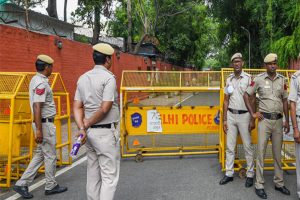Darjeeling MP Raju Bista has strongly opposed chief minister Mamata Banerjee’s decision to allow 30 per cent of tea garden land to be diverted for non-tea purposes, calling it a “dangerous and dictatorial” policy that could displace indigenous communities.
In a Press statement today, Mr Bista urged the chief minister to withdraw the proposal, warning that if implemented without safeguards for traditional land rights, it could leave Gorkhas, Adivasis, Rajbanshis, Rabhas, Koches, Meches, Totos, Bengalis, and other indigenous groups of Darjeeling, Terai, and Dooars homeless.
Advertisement
Mr Bista accused Mamata Banerjee of arbitrarily imposing the policy without consulting tea garden workers or local representatives. “This is yet another instance of the TMC government’s dictatorial attitude towards our region,” he said.
“If this hare-brained policy is forced upon us, the people of Darjeeling, Terai, and Dooars will have no option but to protest,” he warned.
Highlighting the historic exploitation of tea and cinchona garden workers, Mr Bista cited Parliamentary Standing Committee on Commerce Report No. 171, which noted: “Tea workers are in such dire straits that they have to approach tea companies even for land to bury their dead family members.”
“While tea workers struggle for burial land, the West Bengal government is planning to hand over tea garden land to its corporate friends. This is unacceptable,” Mr Bista said.
The MP also raised concerns over the misuse of “tea tourism” projects, alleging that luxury hotels, five-star resorts, and massive commercial developments are already being built on land cultivated by tea workers for generations.
“Now, the state government wants to open tea garden land for commercial real estate development. This is extremely worrisome,” he stated.
Bista cited historic instances of state-led oppression in tea gardens, including:
Margaret’s Hope (1955) – When tea workers were killed while demanding fair wages.
Chandmoni Tea Garden Eviction – Where 15,000 people were forcefully displaced without compensation to make way for the Uttarayan project.
“If this 30 per cent land diversion is allowed, it will mark the end of the tea industry. Real estate developers will take over, and tea and cinchona garden workers—already denied ancestral land rights—will face large-scale displacement,” Mr Bista warned.
Darjeeling District Chiyaa Kaman Mazdur Union president Saman Pathak has strongly opposed the state government’s decision to allow 30 per cent of tea garden land for commercial use, calling it a threat to workers and the tea industry.
Announced at the Bengal Global Business Summit (BGBS), the move could displace tea garden workers, who have lived on these lands for over a century without ownership rights. “The chief minister has exposed the real intent behind the five-decimal land survey—paving the way for big traders while neglecting workers,” Mr Pathak, who is district CPM secretary, stated.
He alleged a larger conspiracy to weaken north Bengal’s tea industry and urged all trade unions to unite in protest. “We will not allow permanent residents to be evicted for corporate interests,” he asserted.











